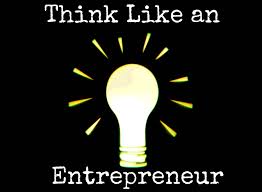There was a period in which Musyoka went through four different jobs in three years. He just never felt settled and would always find fault with the current organisation or immediate supervisor. He finally left to start his own business not because he had the perfect plan but in his own words – “he felt he just needed to get out of there”. He finally caught on to the fact that the problem was not the employer but him. What made Musyoka so restless? Why couldn’t he stay in one role?
Entrepreneurs feel restless when they are not where they should be. It’s a condition that is hard to describe to others especially when where you are checks all the normal boxes. Regular income, right title, right organisation etc. It is not a justifiable restlessness by society standards. Like Musyoka, many may deny this restlessness and find fault with the current employer. No matter how good the job is or the perks are, an entrepreneur will feel like a caged bird at some point.
They may try to cover it up by convincing themselves or finding another job but though they can disguise it, they cannot shake that discomfort off. Then one day they snap and leave. Like Musyoka they may not have a clear path or perfect answers to where they are going and why they are doing it but they just know they have to. There is something instinctive that kicks in that tells them that they will find their way while they are in the game, not when they are bystanders.
Atieno has been running her own law firm for three years. Like everyone in business she sees her share of ups and downs. Over that period of time, she has been offered 4 extremely senior jobs in multi national organisations. She wonders where these opportunities were when she was still employed, and was looking for a way out of that particular job. Some of these jobs offers with their tantalizing higher six-figure incomes, show up when she does not have a shilling in the bank and has mountains of bills to pay. Temptation to ease the pain has been high. Why doesn’t Atieno ever take these highflying jobs, which would sort out her financial dilemma?
As an Entrepreneur, you start understanding that there is no price to freedom. Yes, not even a six figure income. The freedom I am talking about is not what people usually think. It is not short working hours, being a boss, and playing golf on Monday morning. This freedom comes with responsibilities. You will work harder and longer than you have in your entire life. There is no “boss identity” because the challenges teach you humility and for a while everyone else seems to be the boss – your creditors, the bank, suppliers, clients and the employees who get paid before you. I mean the freedom to think.
The freedom to go out and experiment on the idea that you were thinking about. Freedom to know that this idea does not have to be boxed into someone else’s approval or way of thinking. If you fail, it was your lesson to learn. If it works you build on it. The freedom to plan and allocate time. Freedom to wake up every morning and create your own experience.
Mwangi worked for three months in a bank after finishing high school. He interacted well with the people there and had even formed solid relationships with top executives. It was almost certain that his position would be confirmed and he would even get a promotion. Mwangi quit his job to the surprise of many of his colleagues and dismay to some members of his family. He went travelling for three months and then came back and started a business.
This was a stable job, promotion and career acceleration in sight, prestigious organisation. Why would he do that? Entrepreneurs simply do not conform to what is expected of them. In our normal way of thinking it’s outrageous that Mwangi should go travelling and leave a job with fantastic potential. Conformity will kill any entrepreneurship streak that one may have. Entrepreneurs do not listen to that fearful voice that comes whenever you have an idea.
You know that one that immediately starts to wonder what other people will think. Entrepreneurs get in touch who they are. Sometimes as they are doing things as crazy as travelling for three months without a job. They know every human being is different and become comfortable in that difference. This difference becomes what is truly authentic about them and that is what attracts people to them. This authenticity is why they end up succeeding in extraordinary ways.
Three years into his first business Musyoka made a lot of money. But he still left it and started something completely different once again throwing himself into the financial deep end. Entrepreneurship is not about simply being in business. It is following a call to achieve something or have an impact that is greater than one individual. Money does not satisfy that internal push. Like Musyoka many people fail or let go of their first venture because that is not where they felt that fulfillment.
Statistics may say many businesses fail in the first three years. I am coming to believe, for true entrepreneurs the business just transitions. Entrepreneurs understand that it doesn’t always have to make sense and it is hard to explain or even encourage someone to go this ‘senseless’ route because they know how difficult the journey is. That’s why it sometimes becomes difficult to explain it to someone who is not in the same shoes. An instinct is possibly the best way of describing that initial urge. Motive is what sustains them in the journey.



Yes that is true entreprenures behave like artist.